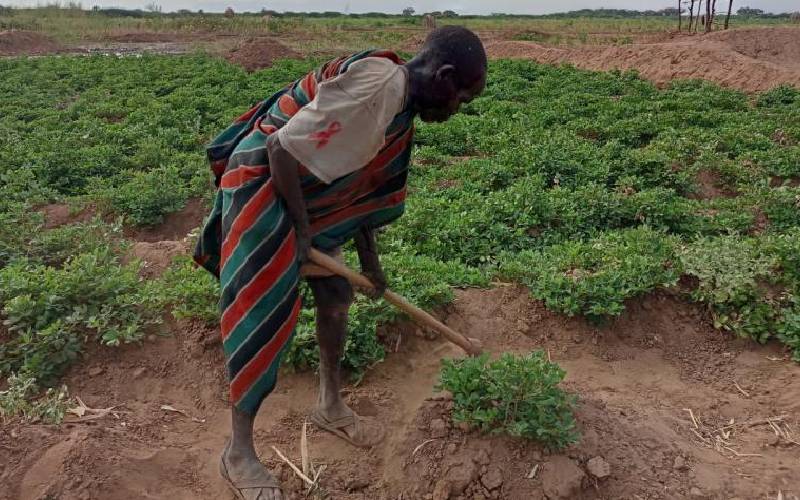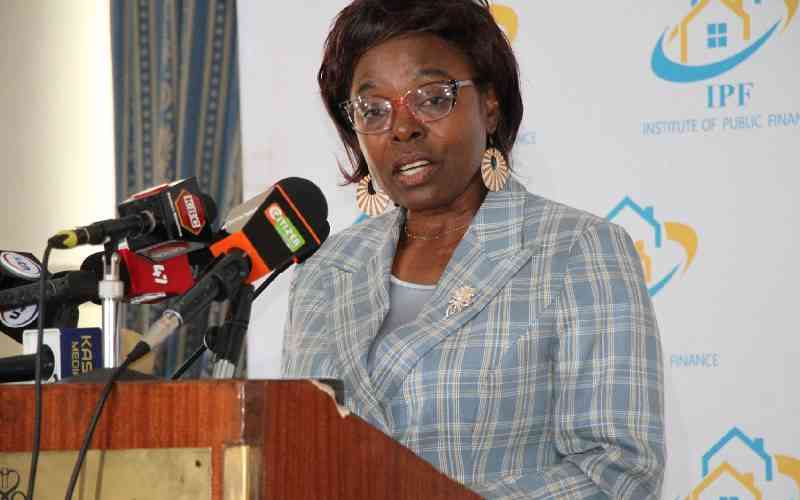×
The Standard e-Paper
Kenya’s Boldest Voice

Man weeding groundnuts at a farm in Turkana. [File, Standard]
When drought-ravaged her sorghum and bean crops five years ago, Kenyan farmer Ngina Kyalo did not need to stand in line for food handouts, as in previous years when rains failed.







